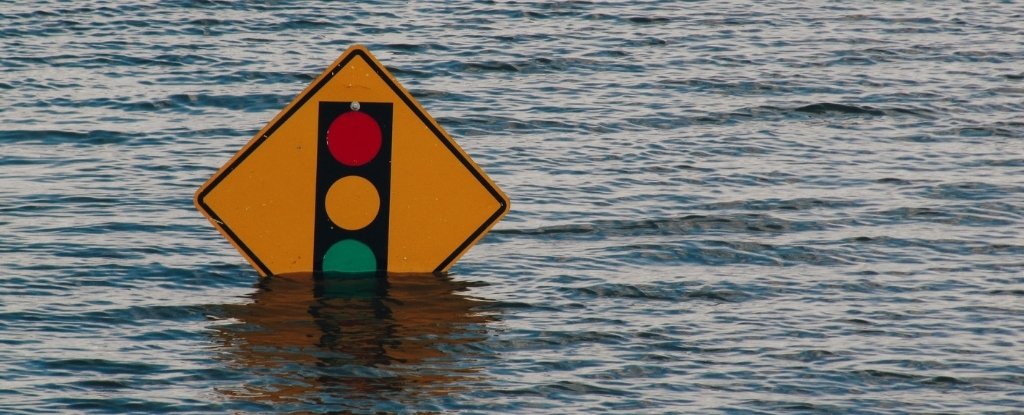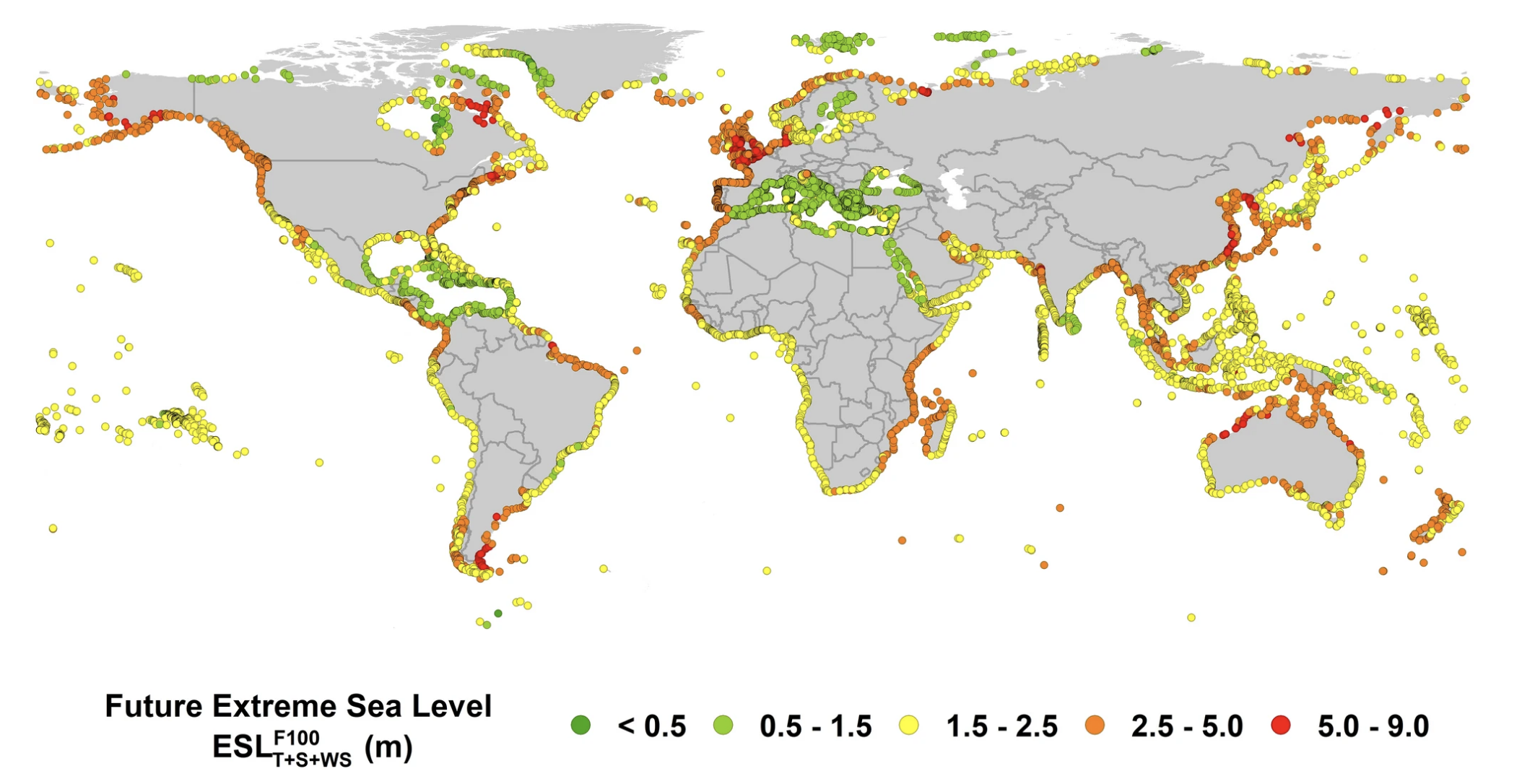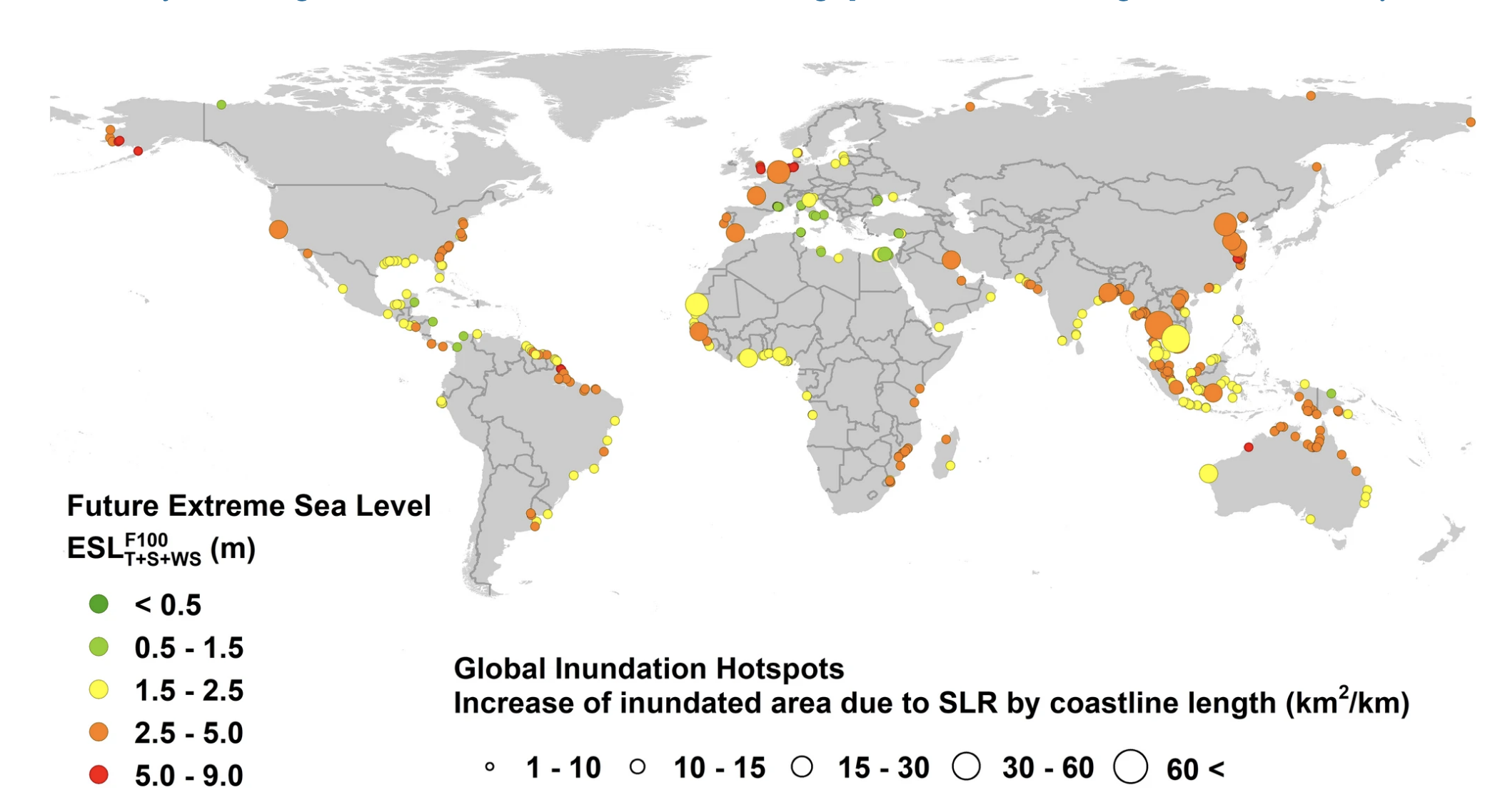
The hazardous ascent of our oceans is pushing tides, waves and tempests further inland from our shores - to such an extent, that in the coming century, researchers anticipate huge wraps of land will be consistently immersed by water.
By 2100, in the event that we have neglected to set up protections and never really control our worldwide discharges, new examination has discovered seaside flooding could increment by about 50 percent.
"We are endeavoring to comprehend the extent of the worldwide scale effects of future seaside flooding," engineer Ian Youthful, from the College of Melbourne in Australia, told CNBC.
"Universally, we have to comprehend that changes of this nature will happen by 2100 and we have to arrange for how we will react."
With 600 million individuals living on coastlines under 10 meters (32 ft) above ocean level, even a consistent ascent in ocean levels implies leaving entire populaces, homes, and foundation to the impulses of the ocean.
Under the most dire outcome imaginable analyzed in the investigation, somewhere in the range of 287 million individuals - 4 percent of the total populace - could be affected by beach front flooding.
For those more slanted to think in dollars, this situation undermines beach front resources worth generally US$14 trillion, or 20 percent of the worldwide Gross domestic product.
Curiously enough, the vast majority of that is from tide and tempest occasions, which are crawling further inland and getting worked up by environmental change. Just 32 percent is anticipated from local ocean level ascent explicitly.
"Despite the fact that normal ocean levels rise generally gradually, we found that these other flooding dangers like elevated tides, storm flood and breaking waves will turn out to be significantly more successive and more extraordinary," framework engineer Ebru Kirezci, likewise from the College of Melbourne, disclosed to The New York Times.
"Those are imperative to consider."
 Global distribution of projected extreme sea level in 2100. (Kirezci et al., Scientific Reports, 2020)
Global distribution of projected extreme sea level in 2100. (Kirezci et al., Scientific Reports, 2020)
The model utilized is a long way from great, and the creators alert their discoveries don't precisely demonstrate neighborhood level forecasts, but instead a more extensive worldwide gauge. These evaluations depend on seaside research from around the globe, and they have been broadly approved against tide check information in both typical and more extraordinary conditions.
Foreseeing what's to come is famously troublesome, and when you consider the unpredictability of environmental and sea frameworks at a worldwide and local level, it turns into all the all the more overwhelming. In any case, giving it a go is likewise exceptionally important when you consider the massiveness of the emergency we are facing.
"Inside the suspicions required to make such a worldwide scale study conceivable", the creators guarantee to have made a "first-pass" gauge of the worldwide effects of ocean level ascent.
More work should be never really out the subtleties, particularly on a local level. All things considered, there are a few pieces of the world that as of now show up especially powerless against scenes of flooding.
In the US, these hotspots incorporate North Carolina, Virginia and Maryland. In Europe, it incorporates the UK, northern France, and northern Germany. In Asia, it incorporates China, Bangladesh, West Bengal and parts of India. Also, in the worldwide south, it incorporates Australia's Northern Region.
 Global "hotspot" regions for coastal flooding by 2100 under the extreme scenario. (Kirezci et al., Scientific Reports, 2020)
Global "hotspot" regions for coastal flooding by 2100 under the extreme scenario. (Kirezci et al., Scientific Reports, 2020)
In the Pacific islands, where ocean level ascent represents an especially existential danger, rising tides could really muffle new water supplies by flooding the water table.
Tragically, now the world is secured to a specific measure of ocean level ascent and environmental change. And keeping in mind that we despite everything have the chance and the chance to genuinely eliminate the harm it will unleash, we have to give these hotspots a head's up and a head's beginning on the off chance that we need to get ready for what's to come.
Assessments like this give us the most obvious opportunity with regards to doing only that. In such a case that we don't anticipate the most exceedingly awful, the most noticeably terrible will come, prepared or not.






No comments